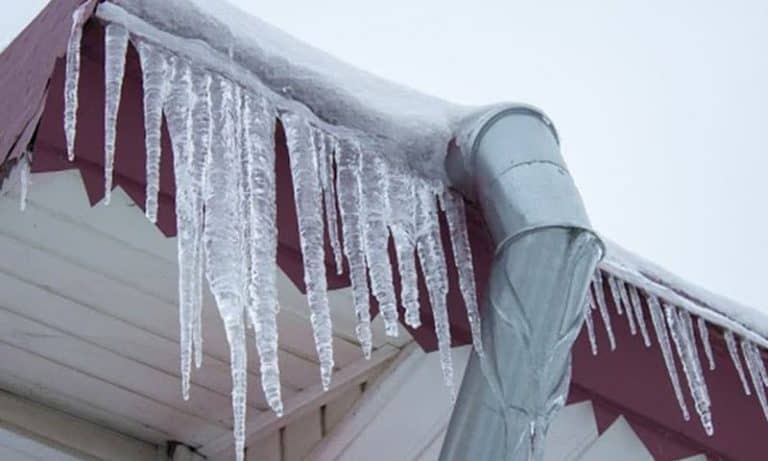Prevent Frozen Water Pipes Which Can Be a Costly Repair
If you’re like millions of Americans that live in a part of the country where the winters are cold, frozen pipes are a reality you have to be concerned about every year. Plumbers in these parts of the country stay plenty busy in the winter repairing frozen pipes. With the cost of fixing frozen pipes able to reach over $10,000 (when they need to be replaced), it’s vitally important to take necessary precautions to make sure your pipes stay working all winter long. Fortunately, there are a number of low-cost ways you can make they don’t freeze.
Keep Your Faucets Dripping
When water freezes, it expands. Water that is frozen inside of plastic or metal pipes can cause them to crack or burst. By leaving your faucets on a constant slow drip during cold temperatures, you ensure that water keeps circulating and doesn’t have the chance to freeze. It’s also a good idea to open any cupboards with pipes underneath sinks allowing the warm air in your house to keep the pipes warm.
Set Your Thermostat to 55 Degrees When You’re Not at Home
By setting your thermostat to a minimum of 55 degrees when you’re not at home, you allow warm air to circulate and keep pipes at a temperature that won’t allow them to freeze. While running your thermostat increases your heating bill, it is a much cheaper alternative than having to deal with costly frozen pipes and the damage they can cause.
Wrap Exposed Pipes to Prevent Frozen Water Pipes
Pipes that are outside and directly in the cold are the most susceptible to freezing. Wrapping exposed pipes like garden hose faucets in insulation or some other protective sleeve keeps them warm and helps ensure they won’t freeze. A simple trip to your local hardware store will give you plenty of choices for wrapping outside pipes that won’t cost you a fortune.
Caulk and Seal All Holes to Prevent Drafting
Prior to the onset of the cold winter months, it is a good idea to thoroughly inspect the walls around all your pipes. If you notice any cracks or openings, use caulking or another sealant to cover them up. Doing so will prevent cold air from drafting and potentially freezing your pipes when winter arrives.
Disconnect All Fixtures from Outdoor Spigots to Prevent Frozen Water Pipes
Making sure that all hoses, sprinklers or other fixtures are detached from outdoor spigots is essential before winter. Residual water that is left in hoses or sprinklers can freeze and back up into your pipes. Even the most finite amount of water can cause a pipe to freeze and burst.
Thawing Frozen Pipes
Even if you have taken the measures necessary to properly insulate your water pipes, there is always the chance they may freeze if temperatures plummet. If you find yourself with frozen pipes, there are some steps you can take to carefully thaw them out and prevent frozen water pipes costly repairs.
The first step is to locate the frozen pipe. To do so, turn on each individual faucet one-by-one and take note of those faucets that drip and those that don’t. If some faucets work and others don’t, the frozen pipe is probably near the faucet that won’t turn on. If none of your faucets run however, the frozen pipe is likely at or near the main water supply usually located in your basement or in an insulated crawl space. Run your hands along all the pipes and find the one that feels the coldest. This is likely the pipe that is frozen.
Once you’ve located the area of the freeze, carefully inspect the pipe. If you notice any cracks or fractures, call a plumber right away. This part of the pipe needs to be repaired or it will flood once it’s thawed potentially causing substantial water damage. At this point, you need to turn off your entire water supply and water heater.
If the pipe appears to intact, you can begin the thawing process. Place a space heater or hair dryer at the point of the freeze. Slowly heat the affected area until water begins to run. It’s important to never leave a heat source unattended as fires can easily be started in areas with wood or insulation that is highly combustible.
Frozen pipes are no joke. They can not only leave you without any running water but are highly costly to repair. By taking a few preventative steps to properly insulate and protect pipes before cold winter temperatures set in, you’ll save yourself headache and hard-earned money. In the unfortunate event that your pipes do freeze and won’t thaw, call your trusted Einstein Pros plumber to resolve the issue right away in Oregon, Washington and Nevada.
